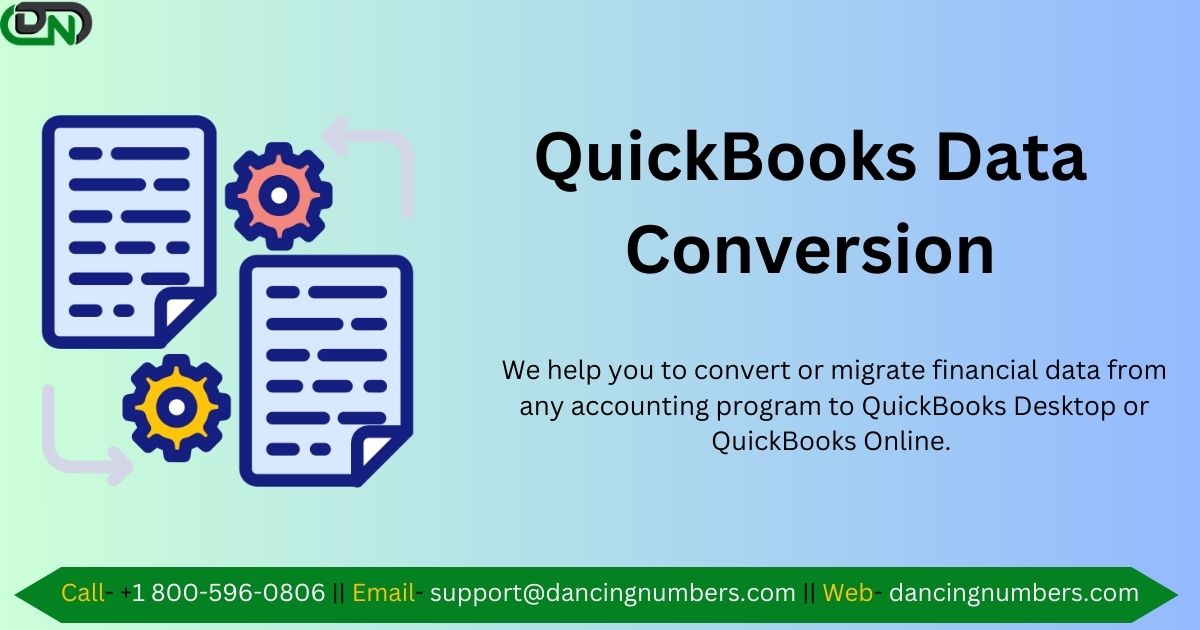Key Software Platforms for Conversion to QuickBooks
 Paul Bryant
Paul Bryant
In today's dynamic business environment, efficiency and precision in financial management are paramount. Many businesses are transitioning their financial data from various software platforms to QuickBooks to leverage its robust accounting capabilities. This article explores the conversion process from popular financial and enterprise resource planning (ERP) systems like Omega, Oracle, SAP, Reckon, and QuickBooks Online (QBO) to QuickBooks Enterprise.
Why Convert to QuickBooks Enterprise?
QuickBooks Enterprise is designed for growing businesses, offering advanced features such as enhanced reporting, inventory management, and customizable workflows. It provides a scalable solution that supports complex financial operations and ensures compliance with industry standards.
Key Software Platforms for Conversion
Omega: Omega is known for its project management and accounting solutions. Converting Omega to QuickBooks Enterprise allows businesses to consolidate their project financials with general accounting tasks, enhancing overall financial visibility.
Oracle: Oracle's financial management solutions are comprehensive, catering to large enterprises. Migrating Oracle to QuickBooks Enterprise can simplify financial processes for medium-sized businesses looking for a more user-friendly and cost-effective solution.
SAP: SAP offers powerful ERP solutions for businesses of all sizes. Converting SAP to QuickBooks Enterprise helps businesses maintain robust financial management while benefiting from QuickBooks' intuitive interface and extensive support network.
Reckon: Reckon provides accounting software suitable for small to medium-sized businesses. Transitioning Reckon to QuickBooks Enterprise offers more advanced features and greater flexibility to support business growth.
QuickBooks Online (QBO): For businesses currently using QBO, upgrading QBO to QuickBooks Enterprise brings enhanced functionality, such as advanced reporting and inventory tracking, while maintaining the familiarity of the QuickBooks ecosystem.
The Conversion Process
The conversion process involves several critical steps to ensure data integrity and continuity in financial operations:
Data Assessment: Evaluating the existing data structure and identifying key data points that need to be migrated, such as customer information, financial transactions, and inventory details.
Data Mapping: Mapping the data from the source software to QuickBooks Enterprise ensures that all information is accurately transferred without discrepancies.
Data Extraction: Extracting data from the source software and preparing it for conversion. This may involve exporting data files or using specialized conversion tools.
Data Importing: Importing the prepared data into QuickBooks Enterprise. This step requires careful attention to ensure all data is accurately captured and organized within QuickBooks.
Validation and Testing: Validating the imported data to confirm its accuracy and completeness. Conducting thorough testing to ensure that financial reports and transactions are correctly reflected in QuickBooks Enterprise.
Benefits of Converting to QuickBooks Enterprise
Enhanced Financial Management: QuickBooks Enterprise offers advanced financial management features that streamline accounting processes and improve financial accuracy.
Scalability: As businesses grow, QuickBooks Enterprise can scale to meet their evolving needs, supporting more complex financial operations and larger data sets.
User-Friendly Interface: QuickBooks is renowned for its intuitive interface, making it easier for users to navigate and manage their finances.
Comprehensive Support: QuickBooks provides extensive support resources, including customer service, training materials, and a large user community.
Conclusion
Converting financial data from software platforms like Omega, Oracle, SAP, Reckon, and QBO to QuickBooks Enterprise can significantly enhance a business's financial management capabilities. By following a structured conversion process and leveraging QuickBooks Enterprise's advanced features, businesses can achieve greater efficiency, accuracy, and scalability in their financial operations.
Subscribe to my newsletter
Read articles from Paul Bryant directly inside your inbox. Subscribe to the newsletter, and don't miss out.
Written by

Paul Bryant
Paul Bryant
My self Paul Bryant work for DancingNumbers company which users to migrate any accounting software data to QuickBooks Desktop or QuickBooks Online.